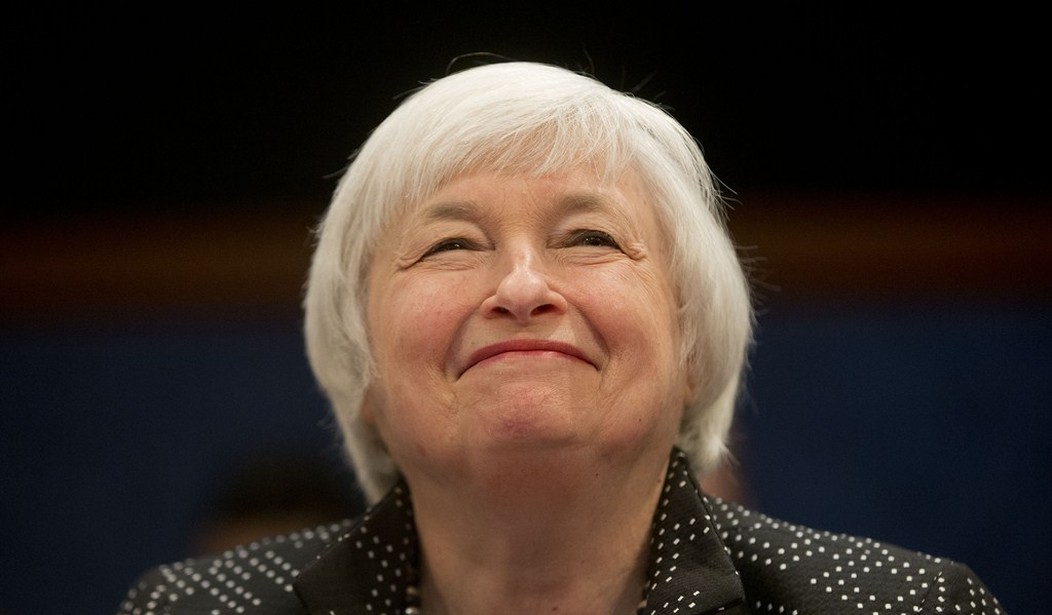Since 2008, the Federal Reserve has been giving banks virtually free money by keeping their short term borrowing rates near zero.
This week, Chairwoman Yellen indicated the Fed is getting even more optimistic about the economy and inflation and further indicated it will end that policy as early as July. The Fed will likely act by gradually raising the federal funds rate—the rate banks pay to borrow ready money overnight.
Higher borrowing rates for banks can cause stock prices to tumble, mortgage rates to jump and jobs tougher to find—but not always.
Here are five things you need to know.
1. Mortgage Rates Are Not Likely to Change Much
When Alan Greenspan increased the fed funds rate in 1994–1995, inflation fears also pushed up yields on 20 and 30 year Treasury securities and mortgages.
Whereas when Ben Bernanke pushed up short rates in 2004-2005, long rates did not similarly jump, because fears about future inflation were subdued and China was printing money at a maddening pace to keep the yuan cheap against the dollar. A lot of that Chinese money came to America and pushed down mortgage rates.
Nowadays, the worry is about deflation not rising prices, and China is joined by Japan, the European Union and other nations in rolling the printing presses.
Easy money policies abroad will keep mortgage rates low in America.
2. Bank fees and car loans will get more expensive
New banking regulations designed to prevent a repeat of the 2008 financial meltdown are already pushing up banks’ cost of doing business. Higher short rates will make things worse and look for banks to further boost fees on checking accounts and related services, and charge higher rates for short term credit—Visa and MasterCard, car and appliances loans, and home improvements.
Recommended
The good news is banks may start competing more for your money and pay higher rates on checking accounts.
3. Unemployment Won’t Be Much Affected
Banks are already downsizing in the wake of heavier regulatory burdens as fast as they can and higher rates won’t much change that trend. The same goes in the oil patch where lower crude prices are curbing drilling activity and dampening employment in boom towns.
Elsewhere, finding a job is toughest for the long term unemployed whose skills atrophied during the Great Recession and slow recovery, and for whom government benefits—expanded Medicaid and food stamps for healthy men—have often overwhelmed incentives to reskill.
If six years of rock bottom interest rates didn’t get idle men off their couches, a few more years won’t help much.
4. Economic Growth and Inflation Will Pick Up
Consumers will soon start spending all the extra cash lower gas prices has provided and will overwhelm the growth-slowing consequences of job cuts in the banking and oil sectors.
Overall, jobs gains will continue—likely not as quickly as anyone wants—but if Europe can avoid mishandling the Greek debt situation, the global economy won’t sink America’s boat.
Gasoline prices have bottomed and moderate inflation closer to 2 percent will return by summer. That should make Yellen confident to continue increasing the federal funds rate over 2 or 3 years.
5. Stock Prices Wyeleill Continue Strong
Yellen has done a great job of preparing investors for higher interest rates. The economy has emerged from a tough recession and slow recovery, in which the Fed deemed ultra-low interest rates necessary but in the past decades, the stock market has moved upward solidly with short rates in the range of 3 or 4 percent. That should happen again.
With a strengthening economy, if you are planning a new car or home improvement, do it now, and if you are an investor on the sidelines, gradually start buying in.
America is not going out of business—it doesn’t need free money for bankers to thrive.
Peter Morici is an economist and professor at the University of Maryland and a national columnist. He tweets @pmorici1
























Join the conversation as a VIP Member